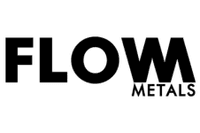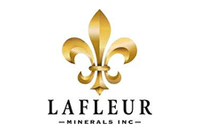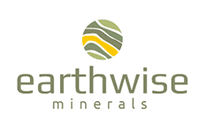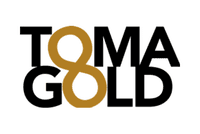Top 5 Canadian Mining Stocks This Week: Belo Sun is Radiant with 109 Percent Gain
Explore the week's best-performing Canadian mining stocks on the TSX, TSXV and CSE, and dive into the Canadian and US news affecting commodities prices and stock markets.

Welcome to the Investing News Network's weekly look at the best-performing Canadian mining stocks on the TSX, TSXV and CSE, starting with a round-up of Canadian and US news impacting the resource sector.
On Tuesday (February 17) Canadian Prime Minister Mark Carney announced the creation of Canada’s first Defense Industrial Strategy, aimed at supporting the nation’s defense sector and overall sovereignty.
The strategy will shift procurement's focus to prioritize Canadian manufacturers, aiming to create 125,000 new jobs throughout the supply chain, and will include accelerating critical mineral projects.
Not included in the prime minister's official announcement, the strategy will also create a critical minerals stockpile to support the independence of domestic supply chains. The news follows a February 7 announcement out of the US, which said it will create its own critical minerals stockpile through Project Vault, a multibillion-dollar plan aimed at reducing dependence on the foreign supply chain and providing access to minerals needed for advanced manufacturing.
Statistics Canada released its December monthly mineral production survey on Friday (February 20).
The data shows an increase in the production and shipment of gold and copper over November’s figures.
Copper output increased to 43.65 million kilograms, from 39.7 million the previous month; meanwhile, gold production rose to 18,210 kilograms from 18,086 kilograms in November. For shipments, copper jumped to 57.86 million kilograms from 45.87 million kilograms, while gold shipments increased to 19,233 kilograms from 17,625 kilograms.
As for silver, production saw a slight fall to 22,747 kilograms from 23,198 kilograms in November, meanwhile shipments increased to 26,888 kilograms versus 26,207 kilograms.
For more on what’s moving markets this week, check out our top market news round-up.
Markets and commodities react
Canadian equity markets were mixed this week.
The S&P/TSX Composite Index (INDEXTSI:OSPTX) gained 3.96 percent over the week to close Friday (February 13) at 33,817.51, while the S&P/TSX Venture Composite Index (INDEXTSI:JX) rose 4.99 percent to 1,042.56.
The CSE Composite Index (CSE:CSECOMP) gained 2.6 percent to 165.86.
The gold price gained 3.5 percent to close at US$5,094.04 per ounce on Friday at 4:00 p.m. EST. The silver price fared better, closing the week up 11.89 percent at US$84.16 on Friday.
In base metals, the Comex copper price recorded a 1.71 percent increase this week to US$5.93.
The S&P Goldman Sachs Commodities Index (INDEXSP:SPGSCI) was up 3.3 percent to end Friday at 602.33.
Top Canadian mining stocks this week
How did mining stocks perform against this backdrop?
Take a look at this week’s five best-performing Canadian mining stocks below.
Stocks data for this article was retrieved at 4:00 p.m. EST on Friday using TradingView's stock screener. Only companies trading on the TSX, TSXV and CSE with market caps greater than C$10 million are included. Mineral companies within the non-energy minerals, energy minerals, process industry and producer manufacturing sectors were considered.
1. Belo Sun Mining (TSX:BSX)
Weekly gain: 108.93 percent
Market cap: C$508.45 million
Share price: C$1.17
Belo Sun Mining is an explorer and developer focused on advancing its Volta Grande gold project in Brazil.
The property covers approximately 2,400 hectares within the Tres Palmeiras greenstone belt in Pará, Brazil. The company has been working on the project since 2003, and acquired the necessary development permits in 2014 and 2017.
A 2015 mineral reserve estimate demonstrated a proven and probable reserve of 3.79 million ounces of gold from 116 million metric tons of ore with an average gold grade of 1.02 per metric ton (g/t).
Development at the site stalled in April 2017 after a suspension order was issued by the Brazilian Federal Regional court until an indigenous study was completed. The decision was later upheld by courts in December of that year.
Then, early in 2018, a federal judge ruled that the Federal Brazilian Institute of the Environment (IBAMA) would be the competent authority for issuing environmental permits. The decision was overturned in 2019, with the Secretariat of Environment and Sustainability of the State of Pará (SEMAS) reassuming its permitting authority. The decision was once again reversed in September 2023, returning authority to IBAMA.
In January 2025, Belo Sun announced that the Federal Court of Appeals had reassigned SEMAS as the permitting authority for the Volta Grande project. The company said it was pleased with the decision, as the agency is familiar with the project and enjoys a constructive and transparent relationship with it.
The most recent news on the case came on February 14, when the company announced that the project's installation license had been reinstated. The court found Belo Sun had complied with the conditions imposed to complete the Indigenous Component Study and that consultation had been conducted in good faith and accordance with protocol.
The company noted that respondents to the appeal will be given the opportunity to file their response with the court and said they would provide further updates as appropriate.
2. Walker River Resources (TSXV:WRR)
Weekly gain: 48.05 percent
Market cap: C$32.66 million
Share price: C$0.57
Walker River is an exploration company focused on advancing its Lapon Gold project in Nevada, US.
The project, located southeast of Reno, consists of 149 claims covering 3,101 acres and hosts three key target areas: Pikes Peak, Lapon Canyon/Rose, and Range Front Rattlesnake.
According to the project page, small-scale underground historic mining at the site dates back to 1914, with more modern exploration occurring in the 1990s after it was acquired by Teck Resources (TSX:TECK.A,TECK.B,NYSE:TECK). During its exploration, low-grade surface-mineralization was discovered over a strike length of 450 meters.
In December 2025, Walker River announced the most recent assays from the site, which returned grades of 3.05 grams per metric ton (g/t) over 117.4 meters, which included an intersection of 6.67 g/t over 18.3 meters.
The company has not released news in the past week.
3. Chesapeake Gold (TSXV:CKG)
Weekly gain: 37.43 percent
Market cap: C$228.17 million
Share price: C$4.92
Chesapeake Gold is a precious metals explorer and developer advancing the Metates and Lucy projects in Mexico. Metates is the more advanced of the two projects and is located northeast of Mazatlan. A July 2021 preliminary economic assessment (PEA) for the project indicated a post tax net present value of US$930 million, with an internal rate of return of 55.9 percent and a payback period of 1.6 years based on a gold spot price of US$1,786 per ounce.
The PEA also reports a measured and indicated resource of 19.8 million ounces of gold and 542 million ounces of silver with average grades of 0.47 g/t gold and 12.9 g/t silver from 1.3 billion metric tons of ore.
The company also owns the less-advanced Lucy project in Sinaloa, Mexico. The property covers 483 hectares and hosts zinc- and gold-bearing skarn systems. A 10 hole, 900 meter exploration program in 2024 produced one highlighted sample grading 6.11 g/t gold over 24 meters from surface.
The most recent news from the company came on Tuesday, when it announced it was named to this year's TSX Venture 50 list. It delivered annual share price growth of 388 percent and a 415 percent increase to its market cap.
4. New Zealand Energy (TSX:NZ)
Weekly gain: 33.33 percent
Market cap: C$12.85 million
Share price: C$0.38
New Zealand Energy is an oil and gas producer focusing on projects in New Zealand’s Taranaki basin.
According to the company’s December 2024 oil and gas reserves summary, it holds proven and probable quantities of 1.15 million barrels of oil equivalent across a range of producing, non-producing, and undeveloped projects. The main producing projects are the Tariki 5 and Tariki 5A wells, which are 50 percent joint ventures with L&M Energy.
The most recent news from New Zealand came on February 9, when it announced that it had closed a non-brokered private placement for 17.5 million common shares for gross proceeds of C$3.5 million.
The company said that the funds raised will be directed to advancing its gas storage project and general working capital.
5. Unigold (TSXV:UGD)
Weekly gain: 32.43 percent
Market cap: C$64.66 million
Share price: C$0.245
Unigold is an exploration company advancing its Nieta Concession in the Dominican Republic.
The property consists of two primary areas, Nieta Sur and Nieta Norte, totaling approximately 21,000 hectares in the Northwest Dominican Republic, near the border with Haiti.
The Candelones project, Unigold’s main focus, is hosted at Nieta. A December 2022 feasibility study for the project indicated a post-tax net present value of US$30.64 million with an internal rate of return of 43.6 percent.
The study also included a mineral resource estimate with measured and indicated open-pit quantities of 974,000 ounces of gold, 59.24 million pounds of copper, and 2.43 million ounces of silver with average grades of 1.56 g/t gold, 0.14 percent copper, and 3.89 g/t silver from 19.37 million metric tons of ore.
The most recent news from Unigold came on Tuesday, when it announced the appointments of Juana Barcelo and Andrés Marranzini to its board of directors. Barcelo has more than 15 years of business and legal experience in the Latin American and Caribbean mining sector, and was most recently the president/country manager for the Barrick Mining (TSX:ABX,NYSE:B) and Newmont (NYSE:NEM,ASX:NEM) joint venture, Barrick Pueblo Viejo.
Meanwhile, Marranzini is a lawyer and the current CEO of Punta Bergantín Development, and has previously held positions within the Dominican government.
FAQs for Canadian mining stocks
What is the difference between the TSX and TSXV?
The TSX, or Toronto Stock Exchange, is used by senior companies with larger market caps, and the TSXV, or TSX Venture Exchange, is used by smaller-cap companies. Companies listed on the TSXV can graduate to the senior exchange.
How many mining companies are listed on the TSX and TSXV?
As of December 2025, 898 mining companies and 71 oil and gas companies are listed on the TSXV, combining for more than 60 percent of the 1,531 total companies listed on the exchange.
As for the TSX, it is home to 175 mining companies and 51 oil and gas companies. The exchange has 2,089 companies listed on it in total.
Together, the TSX and TSXV host around 40 percent of the world’s public mining companies.
How much does it cost to list on the TSXV?
There are a variety of different fees that companies must pay to list on the TSXV, and according to the exchange, they can vary based on the transaction’s nature and complexity. The listing fee alone will most likely cost between C$10,000 to C$70,000. Accounting and auditing fees could rack up between C$25,000 and C$100,000, while legal fees are expected to be over C$75,000 and an underwriters’ commission may hit up to 12 percent.
The exchange lists a handful of other fees and expenses companies can expect, including but not limited to security commission and transfer agency fees, investor relations costs and director and officer liability insurance.
These are all just for the initial listing, of course. There are ongoing expenses once companies are trading, such as sustaining fees and additional listing fees, plus the costs associated with filing regular reports.
How do you trade on the TSXV?
Investors can trade on the TSXV the way they would trade stocks on any exchange. This means they can use a stock broker or an individual investment account to buy and sell shares of TSXV-listed companies during the exchange's trading hours.
Article by Dean Belder; FAQs by Lauren Kelly.
Don't forget to follow us @INN_Resource for real-time updates!
Securities Disclosure: I, Dean Belder, hold no direct investment interest in any company mentioned in this article.
Securities Disclosure: I, Lauren Kelly, hold no direct investment interest in any company mentioned in this article.







